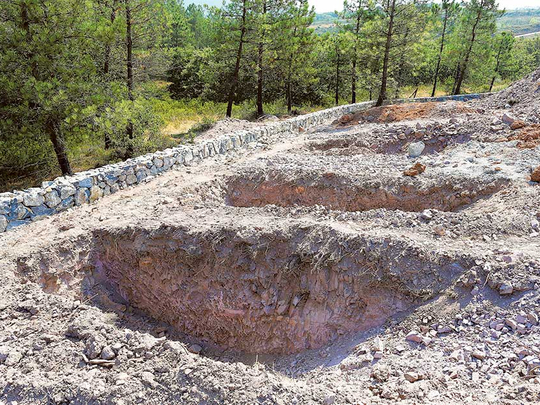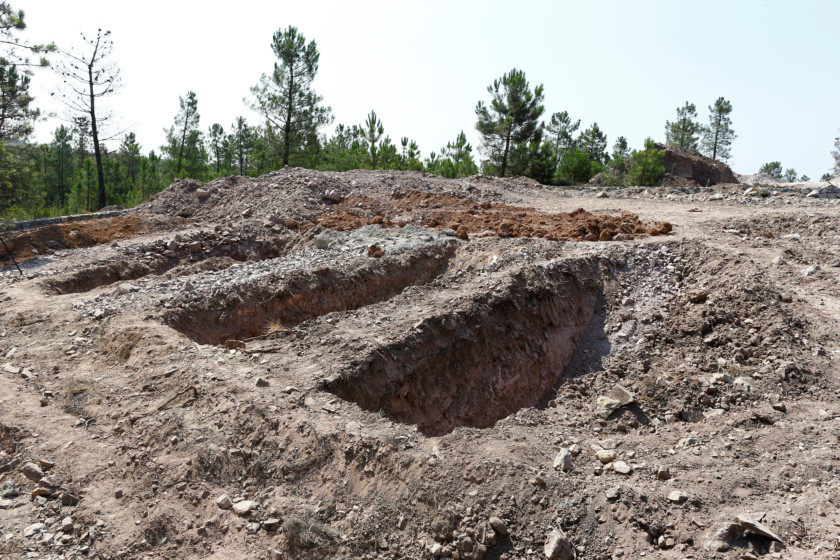
Dubai: President Recep Tayyip Erdogan on Friday accused a top US general of being on the side of Turkey’s coup plotters after commenting that the country’s turmoil could downgrade military cooperation with Washington.
“You are taking the side of coup plotters instead of thanking this state for defeating the coup attempt,” Erdogan said in angry remarks at a military centre in Golbasi outside Ankara, where air strikes left dozens dead during the failed putsch on July 15.
Quoted by US media, US Central Command chief General Joseph Votel had said the coup bid and subsequent rounding up of dozens of generals could affect American military cooperation with Turkey.
In particular, Votel suggested the US had lost key Turkish military interlocutors who are now in jail and accused of being behind the coup.
“Know your place!” Erdogan told Votel, using one of his favourite expressions of anger.
“The coup plotter is already in your country, you are already feeding him,” he said, referring to the US-based cleric Fethullah Gulen who Ankara accuses of being the mastermind of the coup.
Many of the Turkish officers that are the key counterparts for US counterterrorism efforts have been arrested or purged after a failed coup earlier this month.
This is the assessment of both the US general in charge of the Middle East and South Asia, Joseph Votel, and Director of National Intelligence James Clapper.
Neither man sugarcoated their words on Thursday at the Aspen Security Forum.
“It’s affected all segments of the national security apparatus in Turkey,” Clapper said. “Many of our interlocutors have been purged or arrested. There is no question this is going to set back our cooperation with the Turks.”
Votel said he was “concerned about the longer term impact” of President Recep Tayyip Erdogan’s post-coup purges and arrests, though he said the US had ways to manage it. He also acknowledged that some of the Turkish officers who have been arrested worked closely with the US on the fight against the Daesh. “I think some of them are in jail,” he said.
The US-Turkish relationship today is particularly important in the fight against terrorists. Last year, Erdogan’s government allowed American training at Turkish bases and the US and its allies to fly bombing runs into Syria out of the Incirlik airbase. Incirlik is particularly important for US interests because many of the military’s drones, sensors and other intelligence and surveillance platforms used in the Middle East are based there.
Over the last 18 months, Erdogan has also done much more to cooperate with the US on the flow of foreign fighters into Syria through Turkish territory. Jeh Johnson, the US secretary for homeland security, singled out the Turks for special praise on this front on Wednesday evening at the Aspen forum.
But since the coup, there has been tension. “Obviously, we are very dependent on Turkey for basing of our resources,” Votel said. “I am concerned it will impact the level of cooperation and collaboration that we have with Turkey.”
Erdogan has arrested the Turkish general in charge of Incirlik for his role in the aborted coup this month. Following the failed coup, the power for the base was cut. Full US operations there only restarted this week.
Meanwhile, the US is still trying to restore its operations at the Diyarbakir base on the Syrian border, where the US runs personnel recovery missions.
Robert Amsterdam, an international lawyer who has been hired by the Turkish government, told Bloomberg on Thursday that he disagreed with the assessments of Votel and Clapper. “Our information is that a lot of key folks remain,” he said, referring to senior Turkish military officers who have worked closely with the US government.
James Jeffrey, a former US ambassador to Turkey and a fellow today at the Washington Institute for Near East Policy, agreed with Amsterdam. “I have not heard of significant purges of the Turkish intelligence agency or of the foreign ministry,” Jeffrey said. He added that the purges following the coup so far had not affected those at the highest levels of the Turkish military, most of whom were exonerated and are now back on the job.
“At such a delicate time in Turkish-American relations we need to be very careful about what we say publicly about the relationship,” Jeffrey warned. “After all, the senior military and civilian leadership in Turkey in many cases feel they were about to be killed in this coup.”
— With inputs from Bloomberg and agencies













